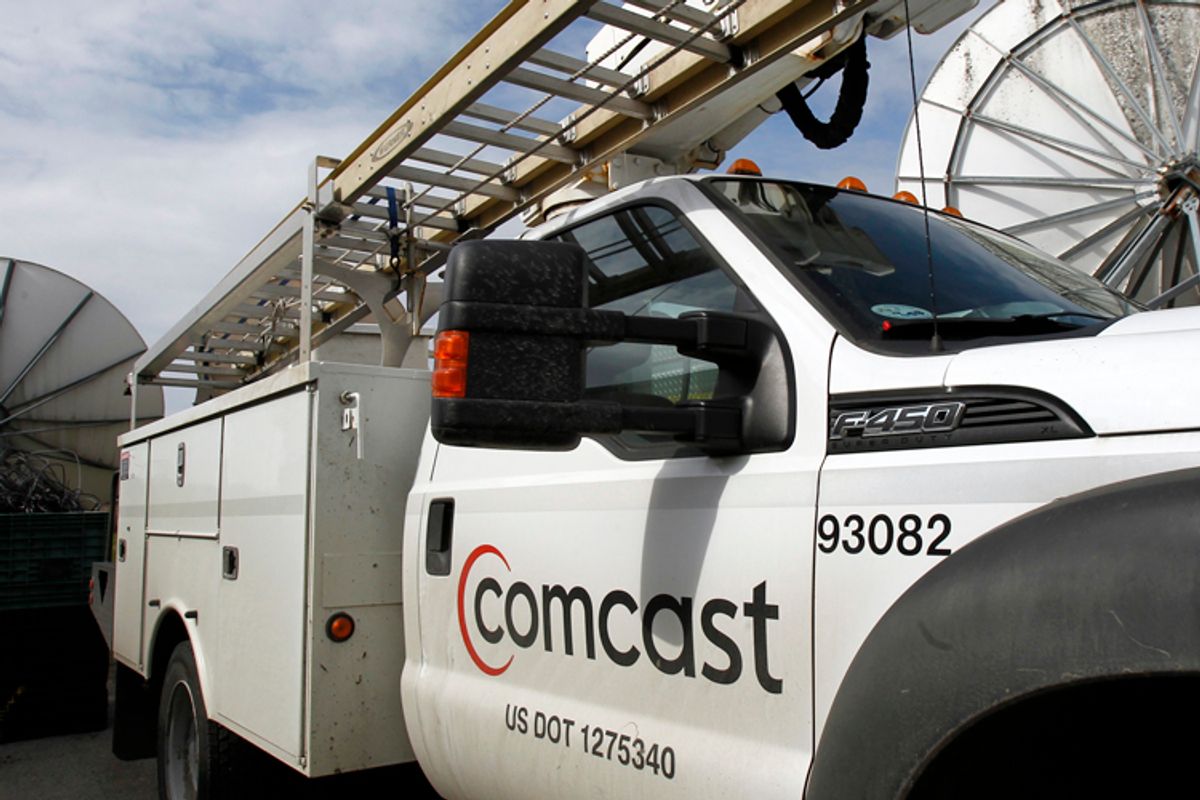No, cable is not doomed by "cord-cutting" Netflix and Hulu users. No, millennials are not going to put an end to "pay TV."
The Huffington Post is the latest publication to sensationalize this moronic myth, under the headline "Yes, Netflix and Hulu Are Starting to Kill Cable."
The evidence for this comes from an outfit called Experian Market Services.
The percentage of cord-cutters, which Experian considers people with high-speed Internet who've either never subscribed to or stopped subscribing to cable or satellite, has risen by 44 percent in just three years.
Forty-four percent seems like a big number. But any time you hear the words "cord-cutter," ask yourself: Where are these people getting their "high-speed Internet access."
If they are among the 70 percent of Americans who have broadband Internet access in their homes, 50 percent of them get their bandwidth from their local cable company. Next up comes DSL from the phone company. which accounts for another 30 percent. I shouldn't have to remind the Huffington Post that cable and DSL Internet access require "cords" that come into the house.
If you are paying for broadband Internet access from Comcast to watch your Netflix or Hulu, you are still paying for your TV. (And if you are watching Netflix on your phone or tablet, and paying your cellular data provider directly for your bandwidth, then you are really paying for your TV, because streaming video will eat up your data cap in nothing flat. Indeed, you are probably already broke.)
The notion that cord-cutting is going to kill cable is ludicrous. Cable companies are the only telecommunication providers that have an infrastructure capable of delivering the kind of high-speed broadband that a Netflix-addicted nation craves. Comcast's revenues and profits are both currently growing -- largely due to strong growth in new Internet access subscribers. You want HBO Go -- you will pay cable for it. You want ultra-high-def Netflix 4K -- you will pay your cable provider for it (and you will almost certainly bust through your broadband data caps for that too.) Even if you are pirating all your entertainment content via BitTorrent, you are still paying for your bandwidth, and thus, your TV. There's no escape. Cable companies are adding 600,000 new Internet subscribers every quarter.
Does that sound like cord-cutting? No! The truth is that, as a nation, we are actually becoming more dependent on cords owned by a single industry -- and increasingly, a single company -- for the Internet access through which we get the bulk of our news and entertainment.
Indeed, one of the primary reasons that the Comcast-Time Warner merger must be stopped is the fact that it will further consolidate Comcast's already dominant position in broadband Internet, which will give the company extraordinary power to impose higher fees on content providers like Netflix and ESPN and Hulu and FX and HBO. The future is quite conceivably one in which we end up paying more for TV, because one company controls the infrastructure that delivers our bandwidth.
There ain't no free lunch. To function in modern society, we need high-speed Internet access. The providers of that access will charge as much as they can for it -- and right now, they will be delivering that access over a cord. We will pay for our TV -- and if Comcast has its way, we will end up paying quite a lot.

Shares